CMN 314
Professional Presentations

1. Course Description
Successful professionals achieve their objectives by consistently designing and delivering meaningful presentations to diverse, demanding audiences. Students learn to structure content coherently, develop poise and confidence, and employ technology in a sophisticated way to connect with their listeners.
Last Revised
Prerequisites
CMN 100 or CMN 124 or CMN 200 or CMN 201 or CMN 207 or CMN 279 or CMN 300 or CMN 373 or Direct Entry
Delivery
Lab: 3 hours
2. Course Objectives & Learning Outcomes
- To analyze audience and context to effectively prepare oral presentations
- To research, structure, and outline a presentation
- To present confidently, fluidly, and engagingly, with or without technology and visual aids
- To develop critical reflection skills
3. Topics Covered
- Audience analysis
- Storytelling
- Designing and planning in-person or digital presentations
- Platform manner
- Delivery style
- Managing presentation anxiety
- Using visual support
- Persuasion
- Group discussion *
*Optional at the discretion of the instructor.
4. Teaching Method
Workshops
CMN 314 gives students the opportunity to deliver at least three individual presentations in class or digitally at the discretion of the instructor. Students will also critique one another’s presentations.
Graded Assignments
-
- Impromptu Speech
- Professionally Related Extemporaneous Speech to Inform
- Professionally Related Extemporaneous Speech to Persuade
- Outlines
- Classroom Participation
- Peer Evaluations
- Group Discussions
The weighting of each unit will be announced by the instructor within the first two weeks.
5. Course Materials
Course Resources
Course resources will be available in D2L.
Forms
Designated speech evaluation forms will be required.
Course Technology Action Requirements
This course makes use of presentation recording technology hosted at Ryerson University. Students must register in advance of their first class to access this private system. Course technology help and guides can be accessed online at the course technology resources site.
6. Policy
6.1 University Policies
Students are required to adhere to all applicable university policies found in their Online course shell in D2L and the Course Outline Policies.
6.2 Print and Digital Copying Guidelines:
Toronto Metropolitan University complies with Canada’s Copyright Act which protects both creators/owners and users of copyrighted materials. Students should familiarize themselves with TMU Copyright policies and procedures, and contact the Copyright and Scholarly Engagement Librarian at copyrt@torontomu.ca for questions, concerns and clarification of the copyright rules.
6.3 Turnitin.com
Turnitin.com is a plagiarism prevention and detection service to which Toronto Metropolitan University subscribes. It is a tool that helps instructors determine the similarity between student work and the work of other students who have submitted papers to the site (at any university), Internet sources, and a wide range of books, journals, and other publications. While it does not contain all possible sources, it gives instructors some assurance that students’ work is their own. No decisions are made by the service; it generates an “originality report,” which instructors must evaluate to judge whether something is plagiarized.
Students agree by taking this course that their written work will be subject to submission for textual similarity review to Turnitin.com. All submitted papers will be included as source documents in the Turnitin.com reference database solely for the purpose of comparing the similarity of such papers. Use of the Turnitin.com service is subject to the terms-of-use agreement posted on the Turnitin.com website. Students who do not want their work submitted to this plagiarism detection service must, by the end of the second week of class, consult with their instructor to make alternative arrangements. Even when an instructor has not indicated that a plagiarism detection service will be used, or when a student has opted out of the plagiarism detection service, if the instructor has reason to suspect that an individual piece of work has been plagiarized, the instructor is permitted to submit that work in a non-identifying way to any plagiarism detection service.
6.4 Email Communication
Toronto Metropolitan University requires that any official or formal email communication from students be sent from their official Toronto Metropolitan University electronic accounts.
6.5 Video and Audio Recording
No video or audio recording is permitted in class without the express permission of the instructor.
7. Learning Management System
Toronto Metropolitan University supports Brightspace by D2L as its official Learning Management System. University Policies governing Brightspace have been documented at the Courses @ Toronto Metropolitan University Privacy and Security website.

